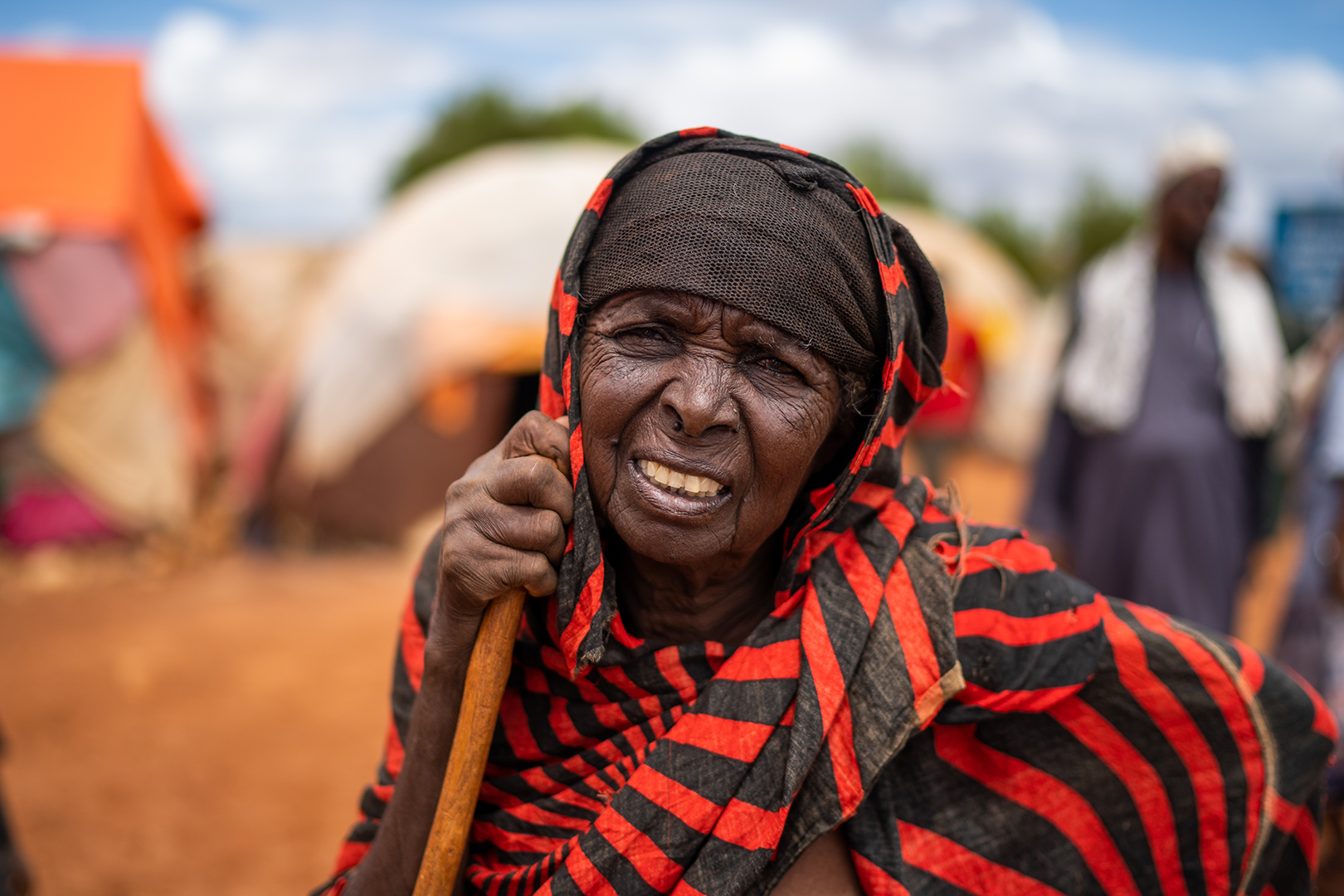Somalia has suffered from hunger and conflict for decades, but with unprecedented drought and record-high food prices, millions of people are now on the brink of famine.
After four failed rainy seasons and a fifth forecast to fail, children and older people are dying of starvation. And families are struggling to survive.
More than 90% of Somalia’s wheat comes from Russia and Ukraine. With supply routes cut off and local harvests wiped out, people no longer have access to affordable food and other essentials. According to WFP, the price of a kilo of rice has doubled from US$1 to $2 and cooking oil has more than doubled, with five litres of oil rising from $4.5 to $9.5.

Older woman in Somalia waiting for help. © Shutterstock
Displacement in Somalia has taken on biblical proportions
With hundreds of thousands of farmers and pastoralists migrating to their nearest cities, displacement in the country has taken on biblical proportions.
The Banadir region in Somalia, which includes the capital Mogadishu, hosts more than 600,000 displaced people living in over 300 informal settlements. The displaced include people who have been there for years and those who are newly displaced; the majority from the drought-stricken regions of Lower Shabelle, Middle Shabelle, Hiran, Bay and Bakol regions.
Most of the camps are overcrowded, self-settled makeshift sites with shelters made of plastic and worn-out clothes. Many of the sites do not have access to drinking water and people have to walk more than 600m to find it.
There are no fences around the camps nor entries and exits, so anyone can enter. And it is very dark, due to the lack of lighting.
There are very few health centres and those that do exist lack adequate medical supplies.
These are harsh conditions for anyone, but particularly severe for older people, especially those with health conditions, mobility issues and disabilities.
Older people are prone to attacks and older women are being raped by men who are under the influence of drugs.
HelpAge is working with Horn International Relief & Development Organisation (HIRDO) to support older people living in these difficult and dangerous conditions.
Together, we are providing cash, referring older people in need of physical and mental health treatment and providing counselling.
Cash is particularly important for older people as many don’t receive any food aid and even when they do, it can be difficult to eat. They can also use it to buy medication. Older people do not receive a pension in Somalia and are unable to afford medication for chronic illnesses.
Abas Aden, HIRDO’s project manager says:
“HelpAge’s support is so crucial as we are on the brink of famine and food prices are skyrocketing and there are no organisations focussing on the needs of older people. They are so vulnerable in these massive camps and urgently need our support. The years of drought and conflict have taken their toll, both physically and mentally and we are doing what we can to help by offering material and psychological support.”
Learn more
Questions and answers with Abass Adan, Project Manager at HIRDO, Somalia
